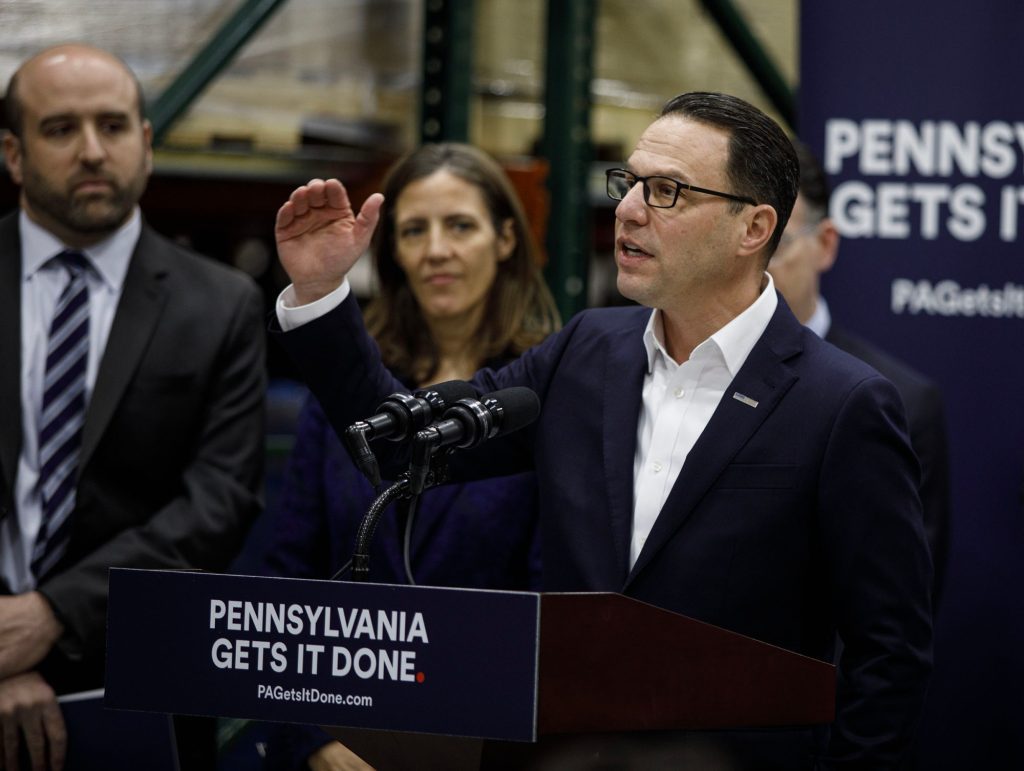SCRANTON — On Wednesday, Gov. Josh Shapiro introduced a plan to combat climate change, stating that he will endorse a law to have power plant operators in Pennsylvania cover the cost of their planet-warming greenhouse gas emissions. The law would also mandate that utilities in the nation’s third-biggest power-producing state purchase more electricity from renewable sources.
This kind of law would make Pennsylvania the first major state producing fossil fuels to implement a carbon-pricing program. However, it is expected to face strong opposition from business interests concerned about increased expenses for power and will have difficulty in a Legislature that is protective of the state’s natural gas industry.
Shapiro’s suggestion comes as environmentalists are urging him to take more action against climate change in the nation’s No. 2 gas state. This comes as the state’s highest court deliberates a challenge to his predecessor’s plan to implement a carbon-pricing program. It also comes after many of the state’s largest power polluters, such as coal-fired plants, have closed or switched to gas.
During a press conference in Scranton, Shapiro mentioned that his plan would increase investment in clean energy sources, create jobs, enhance electricity reliability, reduce greenhouse gas emissions, and lower electricity costs.
According to Shapiro’s plan, Pennsylvania would establish its own independent carbon-pricing program. The majority of the funds paid by polluting power plants — 70% — would go towards reducing consumer electric bills. Shapiro stated that no one would pay more for electricity and many would pay less.
In the meantime, utilities would be compelled to purchase 50% of their electricity from predominantly carbon-free sources by 2035, up from the current state requirement of 18%. Presently, around 60% of the state’s electricity is generated by natural gas-fired power plants.
For now, a state court has halted former Gov. Tom Wolf’s rule enabling Pennsylvania to join the multistate Regional Greenhouse Gas Initiative, which imposes a price and decreasing cap on carbon dioxide emissions from power plants.
When running for governor, Shapiro had distanced himself from Wolf’s plan and questioned whether it adequately addressed concerns that it could harm the state’s energy industry, raise electricity prices, and have little impact on greenhouse gases.









